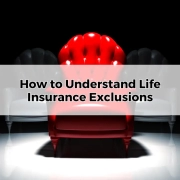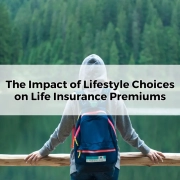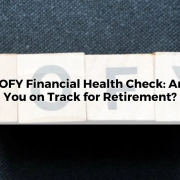Group Insurance vs. Retail Life Insurance: Understanding the Difference
Table of Contents
ToggleAre you in the market for life insurance? If so, then you may have come across terms like ‘group insurance’ and ‘retail life insurance’ thrown around, but what does it all mean and how does it impact your potential coverage? Before making any decisions about your life insurance policy, it is essential that you understand the key differences between group insurance and retail providers of life insurance. This post will outline the fuller implications of these options so that you can make a more informed decision when selecting a suitable policy.
What is group insurance?
Group Insurance is a type of policy that offers coverage to a group of individuals, such as employees of a company or members of an association or super fund. This policy provides protection to its members in case of death or Terminal Illness diagnosis, as well as if they experience partial or total disablement due to sickness or injury, preventing them from working on a temporary or permanent basis.
Employers or fund trustees can choose to have policies either inside or outside of superannuation. They can also get insurance coverage for a group of just 20 members.
Guaranteed or not guaranteed renewable contract?
This means that your group insurance may be able to change the terms and definitions of your insurance cover at any time in the future, and more importantly, they may be able to change to far less favourable terms (i.e., reduce your IP benefit period from 5 years to 2 years) and inform you of the change up to 3 months after they have made the change as long as there is no increase in fees or charges.
For retail funds, generally, as long as you pay your premiums, your policy is guaranteed to continue up until the end of the benefits you have chosen, regardless of any changes in your health or pastimes.
Options for TPD definitions
For some group insurances, because these policies are all inside super, they are bound by the SIS Act (superannuation law), and the best TPD they can offer is any occupation TPD inside super.
For retail fund insurances, retail providers TPD policies inside super are also bound by the SIS Act; however, they have more flexibility to have linked policies outside super, which also give you broader definitions and potentially more certainty at claim time, e.g. Own occupation, TPD, or home duties definition
Is policy underwritten?
Some group insurances will allow you to be underwritten, which means your health and pastimes are accessed at application, and terms offered and accepted to ensure you have certainty at claim time. However, many may only underwrite you at claim time, which reduces your certainty of claim, especially at the point when you need certainty.
Retail policies are mostly underwritten at the application stage, which means your health and pastimes are accessed at the application stage and terms offered and accepted to ensure you have certainty at claim time.
Can I personalise the level of cover I want to suit my needs?
Some group insurances will allow this, while others only allow set amounts of cover, not taking into account your personal situation unique to your actual needs.
Retail policies allow you to take out cover that is based on your unique personal situation.
Does my cover reduce based on my age?
Some funds have unit-based coverage that reduces based on your age, and the levels may reduce well before you need the cover to reduce, resulting in you becoming underinsured at an important time of your life.
Retail policies are applied for and offered. These levels of cover are not generally reduced unless requested by you, giving you more certainty.
Does my change of occupation affect my policy?
For group insurances, this may not affect your coverage; however, some may not cover your occupation if it is a higher-risk occupation than they would not have covered originally or an occupation that the fund would not have covered originally at application. You may not find this out until claim time.
Retail policies are generally underwritten at the application stage based on your occupation. If you change your occupation to one with a higher risk at a later stage, your coverage is, in most cases, still covered.
Does my policy have a Guaranteed Future Insurability option?
Some group insurances will include this, which allows you to increase your levels of cover in the future without having to go through further underwriting due to certain life events (e.g., having a child, purchasing a new house, or an increase of 15% in income). While some funds do not have this option, any increases you apply for in the future must go through underwriting, which may make it hard to attain if your health has declined.
Most retail providers either have this automatically built into your contract or allow you to choose it as an option. This then allows you to increase your levels of cover in the future without having to go through further underwriting due to certain life events (e.g., having a child, purchasing a new house, or an increase of 15% in income) to give you more certainty.
Will I receive my full TPD payout if I meet the TPD definition?
For group insurances, this will depend on the fund; some will pay 1/5th over 5 years, some may pay 80% based on any occupation TPD definition and require a higher disability to attain the other 20%, while others may pay the full amount.
In retail policies, the majority of these are paid in full upon successful meeting and acceptance of the TPD claim.
What happens with an IP claim if TPD is also paid?
For group insurances, some funds will continue to pay the IP; however, some will stop paying your IP benefits in the event of a successful terminal illness or TPD claim, no matter what IP benefit period you have.
In retail policies, the majority will continue to pay your IP benefits even when a terminal illness benefit or TPD benefit has been paid to give you more security.
What happens with an IP claim if a terminal illness claim is paid on my death policy?
For group insurances, some will continue to pay the IP claim until you pass; however, some will stop paying your IP benefits in the event of a successful terminal illness claim being paid, no matter what IP benefit period you have.
In retail policies, the majority will continue to pay your IP benefits until you pass, even when a terminal illness benefit claim has been paid, to give you more security.

How much is payable on a death claim if a result of suicide?
For group insurances, there is a 13-month suicide exclusion for most death policies; however, some have longer. If someone were to pass away as a result of suicide or injuries resulting from this, if the suicide exclusion period has been served, some would pay the full amount of the death benefit, while others may pay a reduced amount, including some as little as 25% of the cover.
For retail life insurance, there is a 13-month suicide exclusion for most death policies. If someone were to pass away as a result of suicide or injuries resulting from this, if the suicide exclusion period has been served, they would pay the full amount of the death benefit.
Can career breaks or times of absence from the workplace impact me at claim time?
For group insurances, some funds have stricter definitions where they may impose harsher claim requirements if you have been away from the workforce for more than a set period, e.g. For some who are away for longer than 6 months, they may invoke an Activities of Daily Living requirement on a TPD claim, which is far harder than any occupation TPD definition.
Generally, retail funds will have less harsh requirements if you have been away from the workforce for more than a set period, e.g., 6 months.
Can I claim on my IP if I was not gainfully employed at time of claim?
For some group insurances, if your policy is inside super only, these policies are bound by the SIS Act, and you need to be employed at the time of the claim to be a claimable event. If you aren’t gainfully employed, you cannot claim.
For retail life insurance, if your policy is inside super only, these policies are bound by the SIS Act, and you need to be employed at the time of the claim to be a claimable event. If you aren’t gainfully employed, you cannot claim. However, retail policies can also be held outside super or super-linked (both inside and outside super) to avoid this issue and ensure you can claim (there are also a limited number of retail providers who include a solution inside the super contract to avoid this situation as well).
Can you take an age 65 benefit period on your IP?
For group insurances, some will allow this, while others may only allow a 2- or 5-year benefit, which may leave you with a large income gap if you are not able to work beyond that period.
For retail life insurance, yes, retail policies allow you to take out a range of benefit periods as short as 2 years right through to 65 years to give you more certainty in the event of long-term disability.
Are my insured benefits increased each year with indexation to ensure my insured amount stays ahead of inflation?
For group insurances, some will offer this. However, others will not have this as an option, which would mean that the level of cover you have selected falls further behind your potential required level of cover each year. E.g., if you chose a $10,000 IP benefit, if there was 5% inflation each year but no increase in your benefit to adjust for this, in 10 years’ time your insured benefit would be 38% less in value, which may impact you considerably at claim time.
For retail life insurance, retail providers have an option for benefit indexation, which allows your coverage to increase each year by a set amount (e.g., 5%) or CPI, whichever is greater. This increase can generally be accepted each year or declined by you to ensure your decision meets your circumstances.
Are my insured benefits increased each year with indexation to ensure my insured amount stays ahead of inflation while I am on IP claim?
For group insurances, similar to the point above, some will offer this. However, others will not have this as an option, which would mean that if you were on an IP claim, the level you receive will not increase each year while you are on it, affecting your buying power each year. E.g., if you had a $10,000 IP benefit claim, if there was 5% inflation each year but no increase in your benefit to adjust for this, after 10 years on claim, your buying power would have reduced by 38%, potentially impacting your ability to meet your needs.
For retail life insurance, retail providers generally have an option you can choose when applying for cover that ensures there is an increase in your claim benefit each year at a set amount (e.g., 5%) or CPI, whichever is greater. This will help ensure your buying power remains current and you do not fall behind while on a long-term claim.

Are my premiums waived while on IP claim?
For group insurances, some will waive your premiums while on claim; however, others will not waive these, which will impact your cash flow at claim time, which may be impactful.
For retail life insurance, most retail policies generally waive premiums while you are on an IP claim to improve your cash flow position when it counts.
If I am a casual employee or contractor at time of claim will this affect my IP outcome?
For group insurances, even though when you took the cover out you met the requirements of the fund, some may assess you differently at claim time if you are now a casual or contractor working less than a required number of hours per week and apply a more rigid definition such as an Activities of Daily Living benchmark to meet.
For retail life insurance, if you change to a casual employee or contractor in the future after your policy was underwritten, generally this will not change your IP definition in the future, making it easier to claim.
Does your fund pay partial benefits if you are partially unable to work on IP claims?
For group insurances, some do pay partial benefits if you are able to work partially, while others don’t, which may have large implications at claim time if you are able to work partially.
Retail policies pay either full or partial claims based on your circumstances.
What period of time does the fund consider when looking back at what income I had been earning when going on IP claim?
For group insurances, some will look back at the last 12 months average income prior to the claim, while others may only look back at the month prior to the claim, which has little flexibility.
Retail funds will generally look back at the average of the last 12 months prior to a claim, however, some will have the ability to look back further if you have had a greater drop in income in the prior year or years, which may give you a better outcome assessment.
Is there flexibility with options?
Most group insurances do not have the same fully featured options that are available within a retail solution. They are also limited to what is available inside Super, as the product is only available inside Super.
Yes, generally, most retail providers allow a much broader range of options within their product suite, which allows the cover to be more tailored to your circumstances. E.g., you can access trauma cover, which is only allowable outside super, but most allow you to link it to your life and TPD inside super to reduce your premium costs. They also allow a range of buybacks, such as Buy Back on Death, which generally means if you have a successful TPD claim and if the life and TPD are linked (to reduce premiums), it allows you to reinstate the death cover in the future at a set point in time (not available in group insurances).

In conclusion, it is essential to understand the difference between group insurances and retail life insurance. While both provide protection for you and your loved ones in the event of unexpected circumstances, there are key differences that you must know.
Ultimately, the choice between group insurances and retail life insurance will depend on your individual circumstances and needs. It is crucial to take the time to compare and understand the options available to you, seek professional advice, and make an informed decision to ensure you and your family are fully protected.
| POTENTIAL GROUP INSURANCE | POTENTIAL RETAIL FUND INSURANCE |
|---|---|
| Not guaranteed renewable contract? This means that your group insurance may be able to change the terms and definitions of your insurance cover any time in the future, importantly they may be able to change to far less favourable terms (ie. Reduce your IP benefit period from 5 years to 2 years) and inform you of the change up to 3 months after they have made the change as long as there is no increase in fees or charges. | Guaranteed renewable cover? Generally, as long as you pay your premiums, your policy is guaranteed to continue up until the end of the benefits you have chosen, regardless of any changes in your health or pastimes. |
| What options do you have for TPD definitions? Because these policies are all inside super they are bound by the SIS Act (superannuation law) and the best TPD they can offer is any occupation TPD inside super | What options do you have for TPD definitions? Retail providers TPD policies inside super are also bound by the SIS Act, however they have more flexibility to have linked policies outside super which also give you broader definitions and potentially more certainty at claim time eg. An own occupation TPD or home duties definition. |
| Is my policy underwritten? Some group insurances will allow you to be underwritten which means your health and pastimes are accessed at application and terms offered and accepted to ensure you have certainty at claim time. However, many may only underwrite you at claim time, which reduces your certainty of claim, especially at the point of time when you need certainty. | Is my policy underwritten? Retail policies are mostly underwritten at application stage which means your health and pastimes are accessed at application and terms offered and accepted to ensure you have certainty at claim time. |
| Can I personalise the level of cover I want to suit my needs? Some group insurances will allow this, while others only allow set amounts of cover, not taking into account your personal situation unique to your actual needs. | Can I personalise the level of cover I want to suit my needs? Retail policies allow you to take out cover that is based on your personal situation unique to you. |
| Does my cover reduce based on my age? Some group insurances have unit based cover which reduces based on your age and the levels may reduce well before you need the cover to reduce, seeing you becoming underinsured at an important time of your life. | Does my cover reduce based on my age? Retail policies are applied for and offered. These levels of cover are not generally reduced unless requested by you, giving you more certainty. |
| Does my change of occupation affect my policy? Some group insurances may not affect your cover, however some may not cover your occupation if it is a higher risk occupation than they would not have covered originally, or an occupation that the fund would not have covered originally at application. You may not find this out till claim time. | Does my change of occupation affect my policy? Retail policies are generally underwritten at application stage based on your occupation at application. If you change your occupation to a higher risk at a later stage your cover is in most cases still covered. |
| Does my policy have a Guaranteed Future Insurability option? Some group insurances will include this which allows you to increase your levels of cover in the future without having to go through further underwriting due to certain life events (eg. Having a child, purchasing a new house or an increase of 15% income). While some funds do not have this option and any increases you apply for in the future you must go through underwriting which may make it hard to attain if your health has declined. | Does my policy have a Guaranteed Future Insurability option? Most retail providers either have this automatically built into your contract or allow you to choose this as an option. This then allows you to increase your levels of cover in the future without having to go through further underwriting due to certain life events (eg. Having a child, purchasing a new house or an increase of 15% income) to give you more certainty. |
| Will I receive my full TPD payout if I meet the TPD definition? This will depend on the fund, some will pay a 1/5th over 5 years, some may pay 80% based on an any occupation TPD definition and require higher disability to attain the other 20%, while others may pay the full amount. | Will I receive my full TPD payout if I meet the TPD definition? In retail policies the majority of these are paid in full on the successful meeting and acceptance of the TPD claim. |
| What happens with an IP claim if TPD is also paid? Some group insurances will continue to pay the IP, however some will stop paying your IP benefits in the event of a successful terminal illness or TPD claim being paid, no matter what IP benefit period you have. | What happens with an IP claim if TPD is also paid? In retail policies the majority will continue to pay your IP benefits even when a terminal illness benefit or TPD benefit has been paid to give more security. |
| What happens with an IP claim if a terminal illness claim is paid on my death policy? Some group insurances will continue to pay the IP claim until you pass, however some will stop paying your IP benefits in the event of a successful terminal illness claim being paid, no matter what IP benefit period you have. | What happens with an IP claim if a terminal illness claim is paid on my death policy? In retail policies the majority will continue to pay your IP benefits until you pass even when a terminal illness claim benefit has been paid to give more security. |
| How much is payable on a death claim if a result of suicide? There is a 13-month suicide exclusion for most death policies, however some have longer. If someone was to pass away as a result of suicide or injuries resulting from this, if the suicide exclusion period has been served some would pay the full amount of the death benefit, while others may pay a reduced amount including some as little as 25% of the cover. | How much is payable on a death claim if the result of suicide? There is a 13-month suicide exclusion for most death policies. If someone was to pass away as a result of suicide or injuries resulting from this, if the suicide exclusion period has been served, they would pay the full amount of the death benefit. |
| Can career breaks or times of absence from the workplace impact me at claim time? Some group insurances will not impact while others has stricter definitions where they may impose harsher claim requirements if you have been away from the workforce for more than a set period eg. For some away for longer than 6 months they may invoke a Activities of Daily Living requirement on a TPD claim which is far harder than any occupation TPD definition. | Can career breaks or times of absence from the workplace impact me at claim time? Generally retail funds will have less harsher requirements if you have been away from the workforce for more than a set period eg. 6 months. |
| Can I claim on my IP if I was not gainfully employed at time of claim? If your policy is inside super only, these policies are bound by the SIS Act and you need to be employed at the time of claim to be a claimable event. If you aren’t gainfully employed you cannot claim. | Can I claim on my IP if I was not gainfully employed at time of claim? If your policy is inside super only, these policies are bound by the SIS Act and you need to be employed at the time of claim to be a claimable event. If you aren’t gainfully employed, you cannot claim. However, retail policies can also be held outside super or super-linked (both inside and outside super) to avoid this issue and ensure you can claim (there are also a limited number of retail providers who include a solution inside the super contract to avoid this situation as well). |
| Can you take an age 65 benefit period on your IP? Some group insurances will allow this, while others may only allow a 2 or 5 year benefit, which may leave you with a large income gap if you were not able to work beyond that period. | Can you take an age 65 benefit period on your IP? Yes retail policies allow you to take out a range of benefit periods as short as 2 years right through to 65 years to give you more certainty in the event of long term disability. |
| Are my insured benefits increased each year with indexation to ensure my insured amount stays ahead of inflation? Some group insurances will offer this. However, others will not have this as an option, which would mean that the level of cover you have selected falls behind your potential required level of cover further each year. Eg. Assume you chose a $10,000 IP benefit, if there was 5% inflation each year but no increase in your benefit to adjust for this, in 10 years’ time your insured benefit would be 38% less in value which may impact you at claim time considerably. | Are my insured benefits increased each year with indexation to ensure my insured amount stays ahead of inflation? Retail providers have an option for benefit indexation which allows your cover to increase each year on a set amount (eg. 5%) or CPI whichever is greater. This increase generally can be accepted each year or declined by you to ensure your decision meets your circumstances. |
| Are my insured benefits increased each year with indexation to ensure my insured amount stays ahead of inflation while I am on IP claim? Similar to the point above, some group insurances will offer this. However, others will not have this as an option, which would mean that if you were on an IP claim the level you receive will not increase each year while you are on claim affecting your buying power each year. Eg. Assume you had a $10,000 IP benefit claim, if there was 5% inflation each year but no increase in your benefit to adjust for this, after 10 years on claim your buying power would have reduced by 38% potentially impacting your ability to meet your needs. | Are my insured benefits increased each year with indexation to ensure my insured amount stays ahead of inflation while I am on IP claim? Retail providers generally have an option you can choose when applying for cover which ensures there is an increase in your claim benefit each year at a set amount (eg. 5%) or CPI whichever is greater. This will help ensure your buying power remains current and not falling behind while on a long term claim. |
| Are my premiums waived while on IP claim? Some group insurances will waive your premiums while on claim, however others will not waive these which will impact your cashflow at claim time which may be impactful. | Are my premiums waived while on IP claim? Most retail policies generally will waive premiums while you are on IP claim to improve your cash flow position when it counts. |
| If I am a casual employee or contractor at time of claim will this affect my IP outcome? Even though when you took the cover out you met the requirements of the fund, some funds may assess you differently at claim time if you are now a casual or contractor working less than a required number of hours per week and apply a more rigid definition such as an Activities of Daily Living benchmark to meet. | If I am a casual employee or contractor at time of claim will this affect my IP outcome? If you changed to a casual employee or contractor in the future after your policy was underwritten, generally this will not change your IP definition in the future making it easier to claim. |
| Does your fund pay partial benefits if you are partially unable to work on IP claims? Some group insurances do pay partial benefits if you are able to work partially, while others don't, which may have large implications at claim time if you are able to work partially. | Does your fund pay partial benefits if you are partially unable to work on IP claims? Retail policies pay either full or partial claims based on your circumstances. |
| What period of time does the fund consider when looking back at what income I had been earning when going on IP claim? Some group insurances will look back at the last 12 months average income prior to claim, while some may only look back at the month prior to claim which has little flexibility. | What period of time does the fund consider when looking back at what income I had been earning when going on IP claim? Retail funds will generally look back at the average of the last 12 months prior to claim, however some will have the ability to look back further if you have had a greater drop of income to the prior year/s which may give you a better outcome assessment. |
| Is there flexibility with options? Most group insurances do not have the same fully featured options that are available within a retail solution. They are also limited to what is available inside super only as the product is only available inside super. | Is there flexibility with options? Yes generally most retail providers allow a much broader range of options within their product suite which allows the cover to be more tailored to your circumstances. Eg. You can access Trauma cover which is only allowable outside super however most allow you to link it to your Life and TPD inside super to reduce your premiums costs. They also allow a range of buy backs such as Buy Back on Death, which generally means if you have a successful TPD claim and if the Life and TPD are linked (to reduce premiums) it allows you to reinstate the Death cover in the future at a set point in time (not available in industry funds). |









